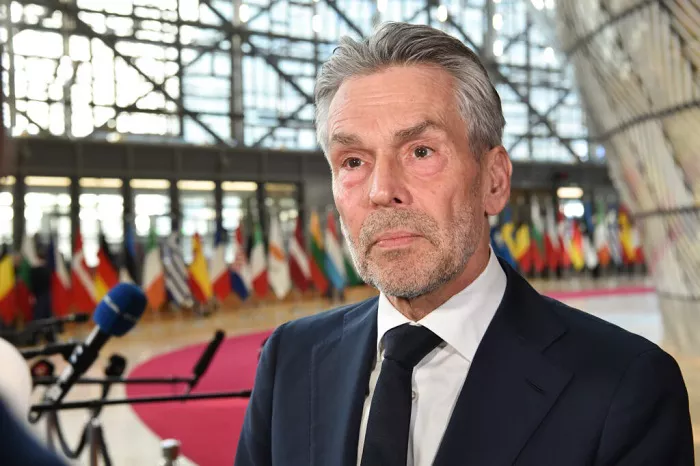Brussels — Less than a year after taking office, the Dutch government has collapsed following a dramatic withdrawal by Geert Wilders, leader of the far-right Party for Freedom (PVV). Wilders’ departure from the fragile conservative coalition has plunged the Netherlands into political turmoil just weeks before a crucial NATO summit scheduled for late June in The Hague, with early elections now looming.
Wilders announced his exit on June 3, citing irreconcilable differences over immigration policy with his coalition partners. The PVV leader, known for his anti-Islam and Eurosceptic stance, demanded a far tougher approach on irregular migration—a demand the coalition failed to meet.
Hours after Wilders’ announcement, Prime Minister Dick Schoof declared he would resign and hand over his mandate to King Willem-Alexander, while remaining in a caretaker role until a new government is formed. Schoof’s 11-month tenure began last July following lengthy coalition negotiations after the radical right’s electoral surge in November 2023. The coalition was the most right-wing government in Dutch history, including Wilders’ PVV, the liberal-conservative VVD (Mark Rutte’s former party), the centre-right NSC, and the agrarian populist BBB.
With the coalition now shattered, the country faces the prospect of a second early election within two years, likely in the autumn. Polls suggest a tight race between three main contenders: Wilders’ PVV—currently losing support—the rising VVD, and a green-social democratic alliance (GL/PvdA) led by former European Commissioner Frans Timmermans.
Other coalition members condemned Wilders’ move as irresponsible and self-serving, accusing him of putting electoral ambitions above national stability. However, Wilders had repeatedly threatened to quit if the government did not adopt his hardline immigration policies, which have long defined his political platform.
Just a day before the crisis, Wilders unveiled a 10-point plan aimed at dramatically curbing irregular immigration. His demands included suspending the national asylum system entirely, halting family reunification for refugees, repatriating all Syrian nationals, shutting reception centers, and militarizing the country’s land borders. Wilders warned the coalition: “If nothing happens, or not enough happens, we are out.” True to his word, the PVV exited immediately following the cabinet’s failure to agree.
Speaking to the press, Wilders insisted his party promised voters “the toughest asylum policy ever” and rejected what he described as the “ruin of the Netherlands” under current policies.
The government’s collapse sends shockwaves ahead of the NATO summit on June 24–25, where alliance leaders will negotiate significantly increased defense spending targets. Rumors suggest commitments could rise from the current 2% of GDP to at least 3.5%, plus an additional 1.5% earmarked for strategic infrastructure investments.
As the Netherlands braces for early elections amid rising political instability, the fate of the coalition’s immigration agenda—and the country’s role on the international stage—remains uncertain.
Related topics:
- Portugal’s Migration Policies Create “Open-Air Prison” for Migrants
- Cayman Government Announces Major Immigration Reform Plans
- GOP Budget Plan Cuts Immigrant Aid, Raises Application Fees


